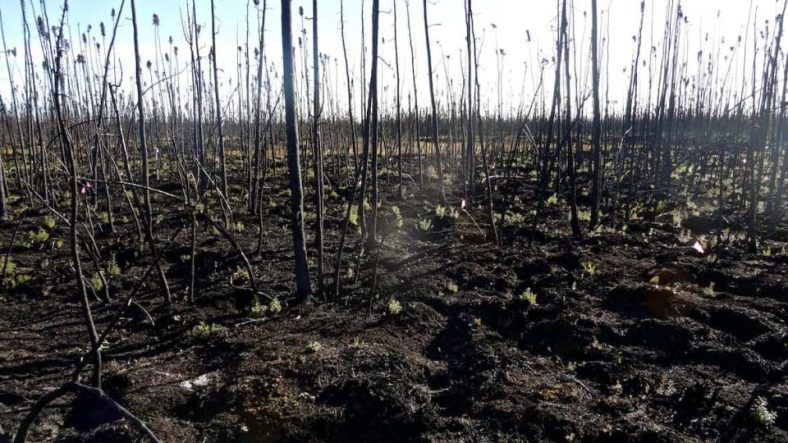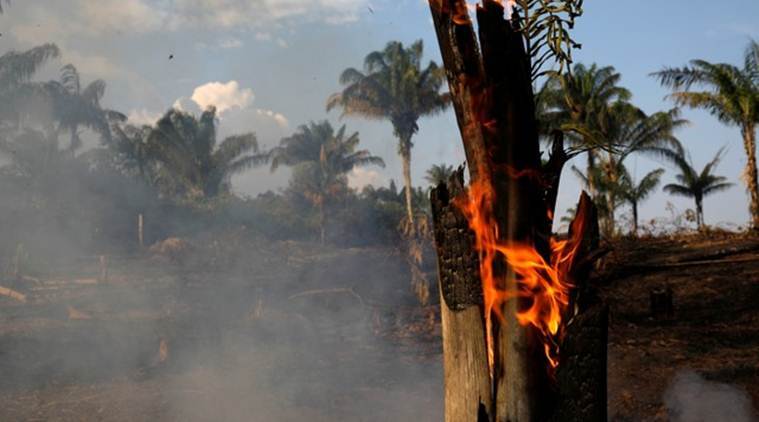
The leaders of the planet will meet over the next few days in New York to discuss major global issues. The Amazon rain forest that burns must concern us all, according to the French president. Does it only concern Brazilians, as President Jair Bolsonaro asserts? The debate is not over.
French President Emmanuel Macron launched the controversy when he wrote on Twitter on August 22 that fires in the Amazon were an international crisis . Our house burns. Literally , he tweeted, inviting the G7 countries to discuss it during their summit, scheduled two days later.
For his Brazilian counterpart, Jair Bolsonaro, blamed for his cuts to the budget of the Environmental Protection Agency (IBAMA) and its links with the agricultural lobby, this statement constitutes an unacceptable interference in the domestic affairs of Brazil and a demonstration of neocolonialism. Europe has no lessons to give Brazil, tweeted Mr Bolsonaro.
Is the Amazonian forest a common good of all humanity or does it only belong to Brazil?
- The Amazonian forest is spread over nine countries: Brazil, of course, where two-thirds of the forest is located, but also Bolivia, Ecuador, Peru, Colombia, French Guiana, Guyana, Suriname and Venezuela.International law is clear. The part of the Amazonian forest that lies within the Brazilian borders belongs only to Brazil, which can, in theory at least, do what it wants, explains Sébastien Jodoin, Assistant Professor at the Faculty of Law from McGill University.
The only exceptions would be if Brazil’s actions caused damage to another country or endangered international peace and security, in which case the use of force might be justified. But we are very far in this case, argue the lawyers.

On the other hand, telling Brazilians how to act would open the door to all sorts of interference, Jodoin said. A state that interferes with the affairs of others would expose itself to being attacked.
Countries have the right to develop as they wish , said Mr. Jodoin, who emphasizes that Mr. Bolsonaro is not wrong when he says that this is what France and Europe in general have done in France. shaving their forests centuries ago.
States have almost absolute control over what is happening on their territory, unless it causes damage to another state, if there is a human rights violation or if it goes against a specific agreement.
Sébastien Jodoin, Assistant Professor, Faculty of Law, McGill University
However, that the Amazon does not belong to us does not mean that we do not have to worry about its survival, argues Oliver Salges of Greenpeace Brazil.
“The Amazon is so crucial to mitigating climate change that everyone should be concerned about it,” says Salges.
In addition to being one of the main climate stabilizers of the Earth , the Amazon is home to a unique biodiversity in the world .
Deforestation is already at a critical level, at around 20% of the forest cover. According to a recent study, if it reached 20 to 25% of the forest, this would represent a point of no return for certain areas of the Amazon, whose ecosystem would become that of a savanna rather than a tropical forest.
How better to protect it?
The burning fires in the Amazon are caused by farmers using this traditional technique to clear the land for better cultivation or grazing.
If they are an integral part of the problem, farmers could also be part of the solution, says Eduardo Souza-Rodrigues, a professor at the University of Toronto, who investigated mechanisms to compensate farmers for preventing deforestation .
Farmers who occupy plots of land in the Amazon can only exploit a small part, or 20%. The rest must be kept in its natural state. But not all of them respect these rules.
However, it would not be difficult to convince them to do so, if we chose to pay them not to deforest rather than to impose fines once the trees were cut.
It is not easy to carry out agricultural activities in the Amazon, says Rodrigues-Souza. In addition to the poor quality of the land and the lack of sunshine, it is difficult to transport the crops, since there are few roads and they are in poor condition.
So small producers do not make a lot of money and would be very receptive to the idea of economic compensation to conserve the carbon stored in the soil.
President Bolsonaro and his supporters also argue that Brazil has the right to develop as it sees fit, as did those who criticize it now.
But it is wrong to say that Brazil needs to cut the Amazon rainforest to continue its development, says Oliver Salges of Greenpeace Brazil. Many farmers have developed more sophisticated techniques to increase yield per hectare by increasing production rather than expanding it using more land, says Salges. It can be done in a sustainable way.
To protect the Amazon rainforest, it will take much more than the $ 20 million proposed by the G7 , says Martin von Hildebrand, head of the Gaia Amazonas Foundation.
“The one who has been campaigning for years for the creation of a corridor from the Andes to the Atlantic clearly recognizes Brazil’s sovereignty over its section of the Amazon rainforest. But being the owner of a territory implies a responsibility,” says von Hildebrand, that of protecting it.
The countries of the Amazon region met on September 6 in Leticia, Colombia, to coordinate their efforts to better protect the forest. The summit, however, did not result in any concrete measures. Jair Bolsonaro was away for medical reasons.
Cindy Kerr is a reporter for The Social Business News Kat has previously interned at VICE and worked as a reporter for MSNBC.


